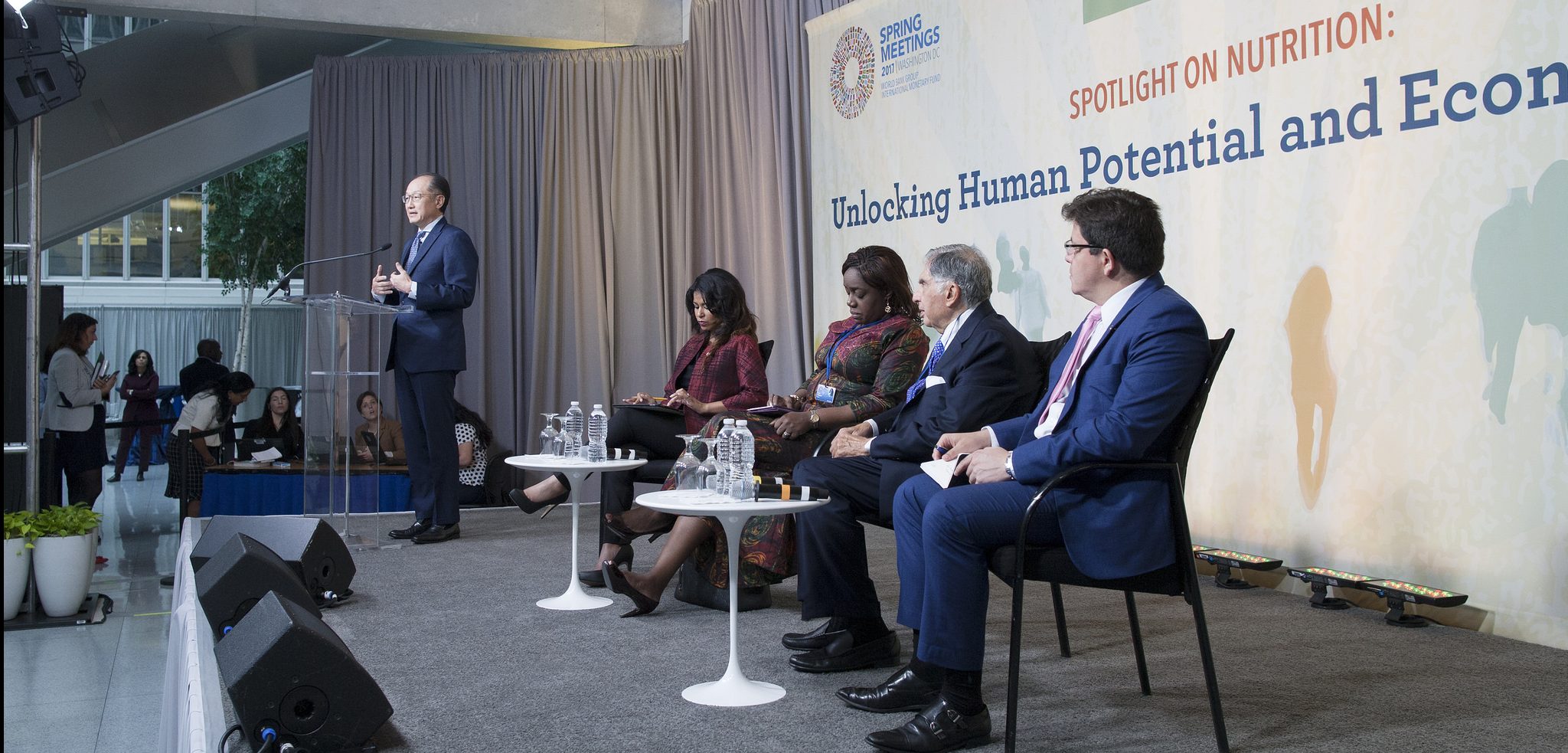
On April 22, the World Bank and Department for International Development, United Kingdom (DFID) hosted “Spotlight on Nutrition: Unlocking Human Potential and Economic Growth,” a panel discussion highlighting how investments in nutrition can yield enormous economic and human capital returns.
Nutrition is essential to the development of children and enables them to be healthy, productive members of society as they grow. Investments in nutrition interventions that address child undernutrition, anemia, and exclusive breastfeeding payoff not only in economic terms but also in supporting the success of other development interventions.
As part of the World Bank Spring Meetings, this event brought together key leaders in a call for policymakers around the world to prioritize nutrition and drive economic progress.
Jim Kim, President of the World Bank Group, stressed the need to invest in nutrition. “There are no excuses,” he said. “We can make a difference for something around 10 dollars per child per year” to reduce child undernutrition. Dr. Kim noted that developing countries must prepare their workforce for a changing economy, especially as automation replaces low-skill jobs. He was excited by a goal set by President Kagame of Rwanda, who aspire to reduce their stunting rate from 38 percent to zero in the next three or four years.
Mark Lowcock, Permanent Secreatary of DFID also encouraged the global development community to increase investment in nutrition, while putting forth a bold commitment on the part of DFID. “Make a contribution to the power of nutrition and the UK and others will add three dollars to every dollar you offer,” he said. This matching scheme has already raised a hundred million dollars of investment for Tanzania, Ethiopia, and Liberia.
You can learn more about the economic case for combating malnutrition in a video from 1,000 Days and the World Bank, and in a new World Bank brief on “Unleashing Gains in Economic Productivity with Investments in Nutrition.”


